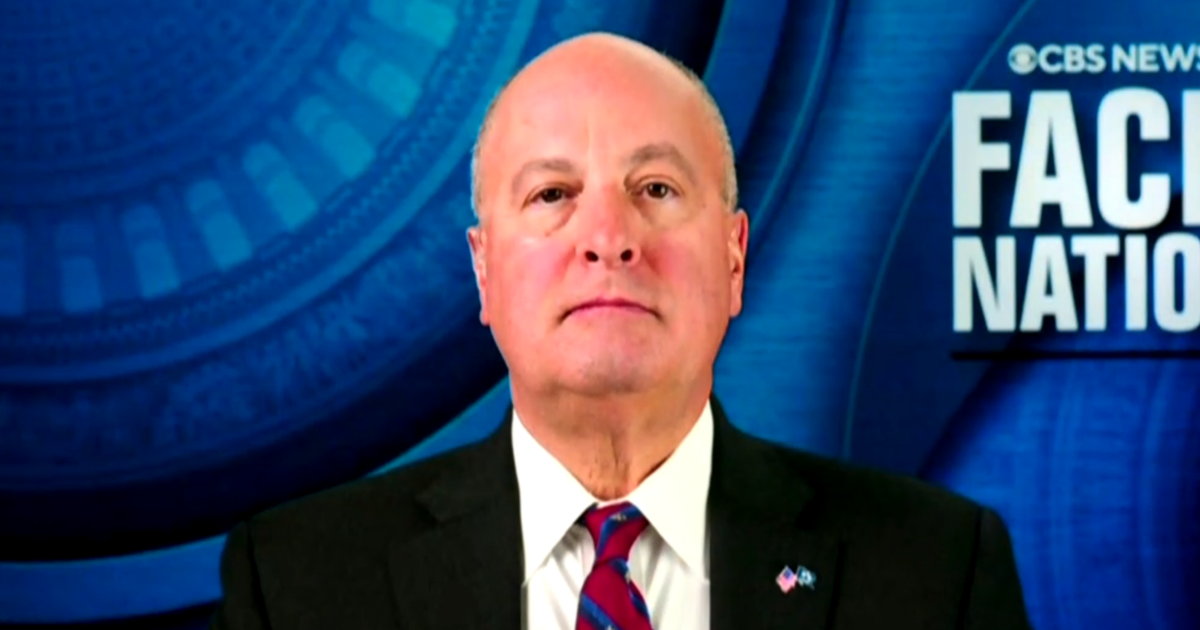**USAA CEO Juan Andrade on the Impact of the Government Shutdown on Military Families**
*Interview transcript from “Face the Nation with Margaret Brennan,” November 2, 2025*
—
**Margaret Brennan:** We’re joined now by Juan Andrade, CEO of financial services company USAA. Many of its nearly 14 million customers are in the military or veterans, and he joins us from San Antonio. Sir, Secretary Bessent said on this program just last Sunday that by November 15, the troops and service members aren’t going to be paid. What level of anxiety are you seeing among your customers?
**USAA President Juan Andrade:** Margaret, thank you for having me on your show. What we’re seeing today is uncertainty, anxiety, and, for some, real hardship—and that’s really within the active duty community. It’s also important to note that 30% of federal employees are also veterans or military spouses. So this is more than an impact to a household budget. This can really undermine morale and focus, and our goal is to provide stability for people who are living paycheck to paycheck and who are frankly losing ground.
**Margaret Brennan:** Well, I’ve seen that you’re offering interest-free loans to customers. Is that everyone, or just specifically active duty military? And if they can’t qualify for a loan, what do they do?
**Juan Andrade:** So we’re offering our government shutdown program to all eligible members of USAA. As you said, that’s currently about 14 and a half million people. At this point, we’ve acted swiftly and decisively. In the first 48 hours of the shutdown, we funded $150 million in zero-interest loans. We are now up to $400 million to date.
But that’s also in addition to payment extensions that we’ve done on credit cards, auto loans, and mortgages. We’ve also waived fees for overdrafts and have had flexible insurance arrangements across our property, casualty, life, and health insurance businesses.
**Margaret Brennan:** Four hundred million in zero-interest loans. So people are already looking to try to figure out how to make ends meet. We looked, and a quarter of all active duty military members are food insecure, according to the Department of Agriculture—that was well before this shutdown. That means they don’t have a good diet or they’re not able to afford food. We already saw strain on a lot of the active duty military. Can you give us a sense of what this means for someone now, to look at the calendar and know November 15, there’s no pay coming?
**Juan Andrade:** Yeah, I agree. This is one of the reasons why we’ve already funded $400 million in loans at this point in time. People are preparing for an uncertain period ahead, and this is very important to them, particularly if we think about our younger enlisted members and especially those with families.
Dual incomes in military families is not a luxury—it’s a necessity. These are people that we’re very worried about, and we want to make sure they’re stable through this period of time. The other part of this, and frankly the reason we’re issuing these zero-interest loans, is to make sure they don’t turn to high-interest payday loans or credit cards at the same time.
**Margaret Brennan:** And the unemployment rate among civilian military spouses is almost five times the national average. To your point, they need dual income, but many can’t do that. The Congressional Budget Office projects that there will be an economic cost—the shutdown itself could lead to $7 to $14 billion in lost growth. What’s the impact on communities like yours, where you’re living, down in Texas, in areas where there are bases around the country?
**Juan Andrade:** Sure. I think you see it in a few ways. One is definitely on consumer spending. Right now, people are prioritizing basic needs, whether it’s health or food, so they’re definitely cutting back on discretionary spending. I think that’s part of it.
The other aspect is you’re going to see more people who are food insecure. This is one of the reasons why we have also been supporting our local communities. Our offices are all located near major military installations, and we have donated millions to military aid societies who are best positioned to provide food and other services on installations. We’ve also been donating to local food banks in our communities.
**Margaret Brennan:** So how does this compare to the last extended shutdown that we had during the first Trump administration?
**Juan Andrade:** The last shutdown basically did not last as long, and I think that was a big part of it. We also had the certainty that the military would be getting paid. Up until now, they have been getting paid. The question is the uncertainty we’re seeing from our members about what happens over the next couple of weeks.
**Margaret Brennan:** Because you were already planning for that November 15 deadline—when you say the shutdown wasn’t this long, you’re assuming the government does not get funded for how long? How long can you keep doing this?
**Juan Andrade:** We’re already planning for a second loan to members. We’ve had a number take us up, certainly, on the first offer of a loan. Now, they’re taking us up on the second offer, and we’re prepared to assist. That’s our job—to take care of our members in the military community. So we will keep this up, and if we have to do more, we will do more.
**Margaret Brennan:** All right. Well, we are thinking of your customers at this time, and we will continue to track what happens with that real-world impact. Thank you, Mr. Andrade.
**Juan Andrade:** Thank you, Margaret.
—
https://www.cbsnews.com/news/juan-andrade-usaa-ceo-face-the-nation-transcript-11-02-2025/


